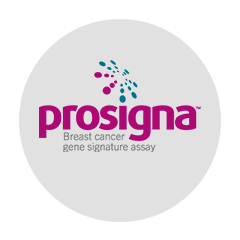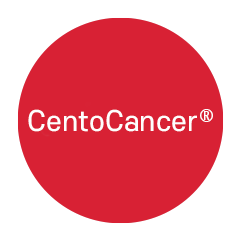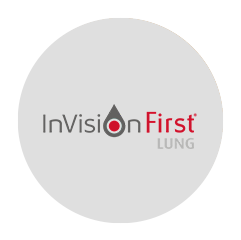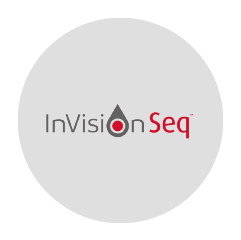-
The Prosigna Breast Cancer Prognostic Gene Signature Assay is indicated in female breast cancer patients who have undergone surgery in conjunction with locoregional treatment consistent with standard of care, either as:
- A prognostic indicator for distant recurrence-free survival at 10 years in post-menopausal women with Hormone Receptor- Positive (HR+), lymph node-negative, Stage I or II breast cancer to be treated with adjuvant endocrine therapy alone, when used in conjunction with other clinicopathological factors.
- A prognostic indicator for distant recurrence-free survival at 10 years in post-menopausal women with Hormone Receptor-Positive (HR+), lymph node-positive (1–3 positive nodes), Stage II breast cancer to be treated with adjuvant endocrine therapy alone, when used in conjunction with other clinicopathological factors. The device is not intended for patients with 4 or more positive nodes.
-
CentoCancer - Our Comprehensive Oncogenetics Panel for Hereditary Mutations Hereditary pathogenic variants confer an increased risk of developing cancers during an individual’s lifetime. Early identification of pathogenic variants in genes which have a predisposition to cancer is a fundamental first step in the diagnosis, management and treatment of individuals and families with hereditary cancer syndromes..
-
InVisionFirst-Lung is a qualitative laboratory developed test that uses targeted advanced sequencing technology to detect single nucleotide variants (SNVs), copy number variants (CNVs), insertions and deletions (InDels) and structural variants in selected genes from DNA isolated from plasma samples from patients with non-small cell lung cancer (NSCLC). The test is intended to aid clinicians in treatment decisions for NSCLC patients
More about Invision First-lung
-
InVisionSeq is a qualitative laboratory developed test that uses targeted advanced sequencing technology to detect single nucleotide variants (SNVs), copy number variants (CNVs), insertions and deletions (InDels) in selected genes from DNA isolated from plasma samples from patients.




